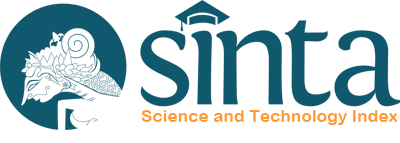Upaya pemikiran rekonstruktif awal terhadap Ekonomi Kerajaan Allah menurut Kitab Taurat
Dan sekelumit tentang kunci keberhasilan koperasi
DOI:
https://doi.org/10.54345/jta.v5i2.79Keywords:
UUD 45 pasal 33, kesejahteraan masyarakat, keadilan sosial, Pancasila, ekonomi hospitalitas, Kerajaan AllahAbstract
Salah satu permasalahan utama dalam bidang ekonomi di negeri ini adalah bagaimana menafsirkan dan menjabarkan Pasal 33 UUD 1945. Namun kalau kita melihat kembali perkembangan terkini pemikiran ekonomi, ada setidaknya 3 arus besar pemikiran: mereka yang percaya sepenuhnya akan kedigdayaanekonomi pasar dan maksimalisasi profit (dipertajam oleh Milton Friedman, 1970); mereka yang percaya bahwa ekonomi yang bernuansa sosialis yang akan memberikan keadilan, dengan perkembangan terkini misalnya sistem komunitarianisme dll; dan yang terakhir adalahupaya mencari jalan tengah di antara kedua kubu tersebut, misalnya yang disebut: state capitalism, atau common prosperity (diperkenalkan oleh Presiden RRC, Xi Jinping baru-baru ini). Meski artikel ini tidak bermaksud membahas secara menyeluruh masing-masing pendekatan, namun kami berusaha melihat kembali seperti apakah corak ekonomi KerajaanAllah yang dirancang Tuhan bagi umat-Nya. Artikel ini juga merupakan salah satu upaya untuk merefleksikan Pasal 33 tersebut dalam perspektif altruisme dalam Etika Kristen, khususnya yang berhubungan dengan konsep keramahan (hospitalitas).Dalam makalah ini, kami mengajukan suatu interpretasi ulang atas ayat tersebut berdasarkan konsep yang kami usulkan untuk disebut sebagai ekonomi kesetiakawanan atau"ekonomi hospitalitas." (dalam artikel terdahulu di jurnal NPTRS, kami mengajukan terma “koinomics.” - apakah ekonomi hospitalitas dan koinomics memang sama persis, tentu perludiskusi tersendiri.) Beberapa hal yang kami pertimbangkan dalam usulan ini antara lainadalah (1) manfaat neurosains dari memberi dan bekerjasama (cooperation), (2) tradisi lokal yang memberikan nilai tinggi terhadap persahabatan, (3) budaya keramahan, (4) pendekatananti-utilitarianisme, (5) konsep identitas relasional.
----
Abstract
One of the main problems in the economic field in this
country is how to interpret and explain Article 33 of the 1945
Constitution. There have been many attempts to conduct a
judicial review of various laws related to Article 33. At the
latest developments in economic thought, there are at least
three major currents of thought: those who fully believe in
the supremacy of the market economy and profit
maximization, as sharpened by Friedman (1970); those who
believe that a socialist economy will provide justice, with
recent developments such as communitarianism, etc.; and
those believing in a middle ground between the two camps,
as commonly called the state of capitalism or prosperity. The
President of the PRC, Xi Jinping, recently introduced the
latter. Without discussing each approach thoroughly, we
look at the types of the economy the Kingdom of God has
designed for His people. This article also aims to reflect on
Article 33 from the perspective of altruism in Christian
ethics, especially those related to the concept of hospitality
(hospitality). Article 33 of the 1945 Constitution says: "The
economy is structured as a joint effort based on the principle
of the family cooperative." (Note: this is a non-official
translation.) Some economists interpret this family principle
as "mechanical solidarity," which is considered outdated. We
propose a reinterpretation of this verse based on a concept
called the solidarity economy, or the "hospitality economy."
(In the previous article in the journal NPTRS, we put forward
the term "koinomics"—both the economics of hospitality
and koinomics are the same, of course, and need a separate
discussion.) Some other issues we consider in this paper
include (1) the neuroscientific benefits of giving and
cooperation, (2) local traditions that place a high value on
friendship, (3) a culture of friendliness, (4) an anti-utilitarian
approach, (5) the concept of relational identity.
References
Aagaard, Annabeth (ed). Digital business models. Cham: Springer Nature, 2019.
Amirtham, S., & Pobee, John S. (eds.) Teologi oleh Rakyat. Jakarta: Penerbit BPK Gunung Mulia, 1993.
Anonymous. Non-Fungible Tokens: A Brief Introduction and History. Nov. 2020. URL: http://www.crypto.com (accessed 2021).
Bahm, Archie J. Filsafat Barat, India, Cina dalam perbandingan. Pustaka Filsafat. Yogyakarta: Penerbit Kanisius, 2003.
Bayeh Tedla, Tewodros. The Impact of Organizational Culture on Corporate Performance. PhD Diss., Walden University, 2016. url: https://scholarworks.waldenu.edu/dissertations
Benkler, Yochai. Chapter 1 in The Wealth of Networks: How Social Production Transforms Markets and Freedom. New Haven: Yale University Press, 2006.
de Bono, Edward. Conflicts: a better way to resolve them. London: Vermilion, 2018.
Boyd, R.N., & Smarandache, F. Remark on Project Greenglow and Rodin coil: Letter to Editor. J. Cosmology, Filaments and Astrobiology Vol. 1 Issue 2, July 2022.
Capra, Fritjof. The Hidden Connections. Kata pengantar: Husain Heriyanto. Cet. III. Yogyakarta: Penerbit Jalasutra, 2009.
Christianto, V., Robby I. Chandra & F. Smarandache. A re-introduction of Pancasila from Neutrosophic Logic perspective. The New Perspective in Theology and Religious Studies Vol. 2, No. 2, 2021: 21-36








